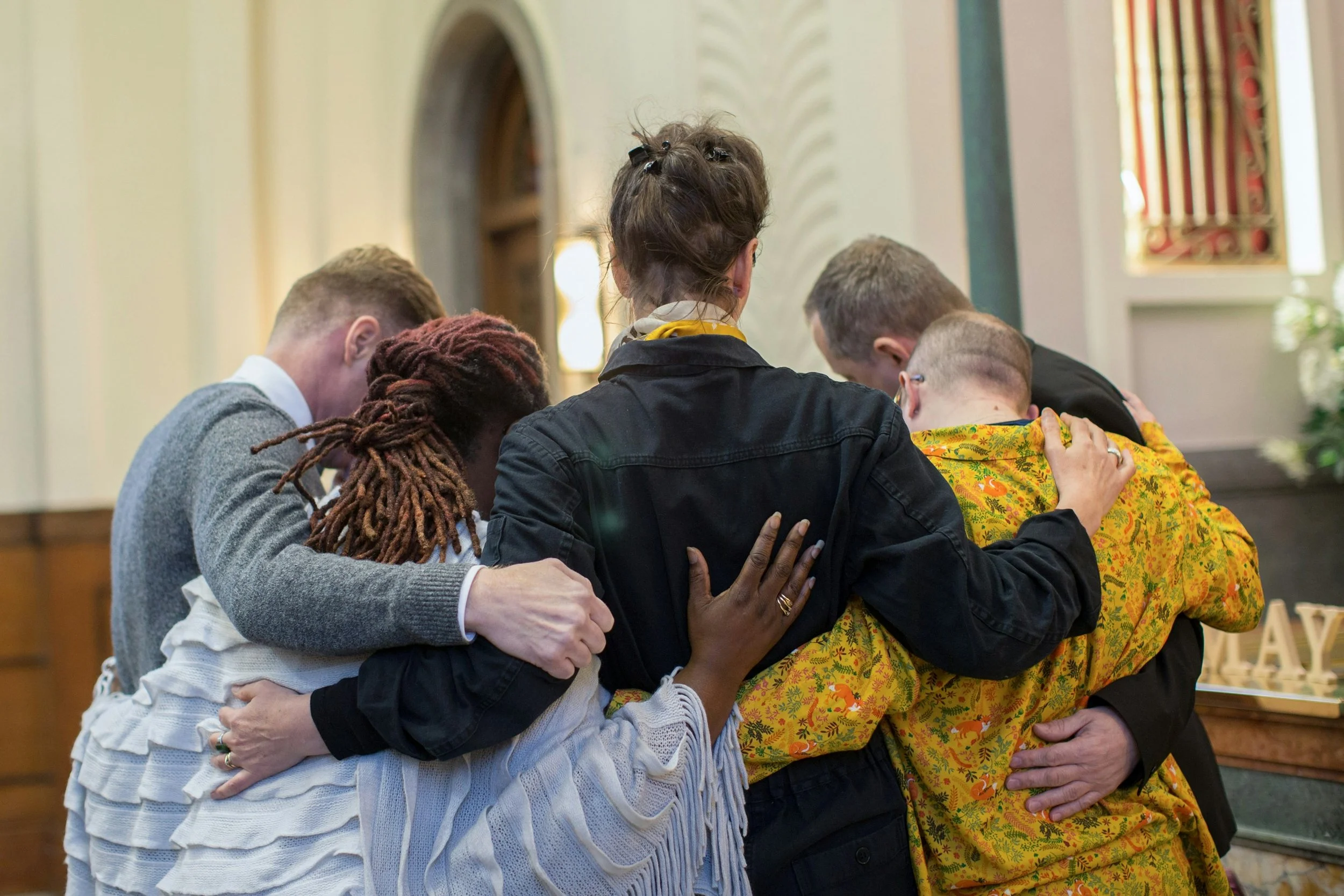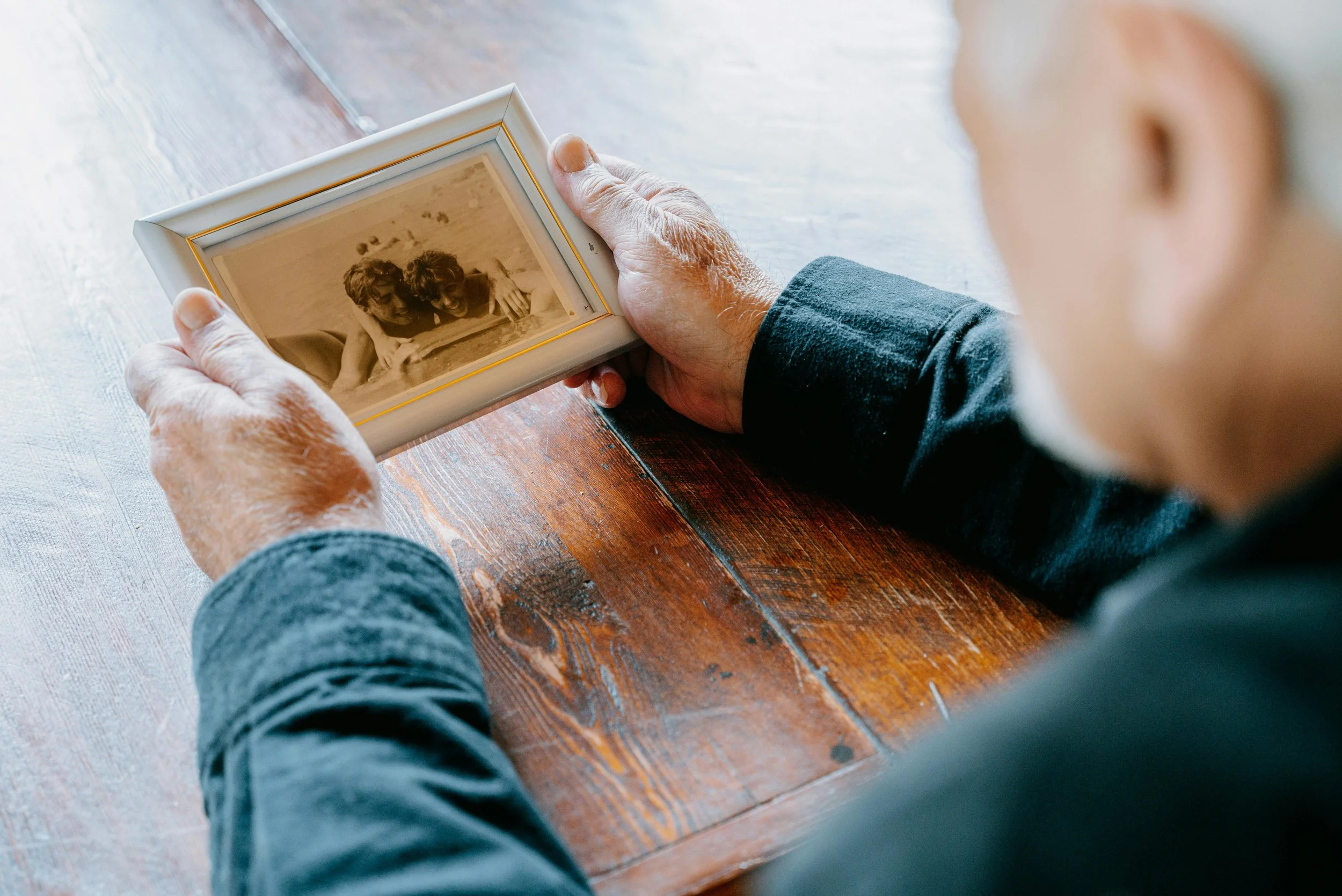Navigating Grief & Loss: A Path to Healing
Grief Therapy: An Introduction
The empty chair at the dinner table. A phone that never lights up. After loss, everyday moments can feel heavy and strange. Grief and loss therapy offers a safe place to process change and rebuild a life that honors what—or whom—you’ve lost.
Grief and loss can profoundly affect people, leading to emotional distress and impacting daily life in ways that may be difficult to manage alone.
Grief is natural, yet about 10 percent of mourners develop prolonged or complicated grief that disrupts life, notes the NIMH on complicated grief. You don’t have to wait a certain amount of time or “stage” before seeking help; support can start on day one.
The American Cancer Society is also a valuable resource for information and support services for those experiencing grief and loss.
Understanding Grief & Loss
What Is Grief?
Grief touches feelings (sadness, anger), thoughts (forgetfulness, disbelief), and the body (fatigue, chest tightness). For some people, grief can feel ever-present, affecting daily life in ongoing ways. The journey is not linear—feelings ebb and flow. While sadness is common, feeling angry is also a valid and normal response to loss. The well‑known five stageswere never meant as strict steps, reminds the Kübler‑Ross Foundation.
Types of Loss
Death of a deceased loved one, which deeply affects family members and loved ones, often leading to significant changes in family dynamics and emotional support systems
Pregnancy or infant loss
Divorce or breakup
Job or identity loss
Collective or community tragedy
Myths vs. Facts
Myth: “You should be over it in a year.” Fact: Grief has no deadline; some waves hit years later.
Myth: “Staying busy fixes grief.” Fact: Distraction helps short‑term, but feelings need space to heal.
Myth: “Crying shows weakness.” Fact: Tears release stress hormones and aid recovery, says Harvard Health.
The CDC’s coping with grief page also underscores that healthy mourning looks different for everyone. People grief in their own way, and some may find comfort in joining a support group or exploring other forms of support, such as online counseling or therapy.
Types of Grief
Normal (integrated) grief – pain gradually blends into daily life.
Prolonged Grief Disorder (PGD) – intense yearning or preoccupation lasting beyond 12 months; now a diagnosis in DSM‑5‑TR, explains the APA overview of prolonged grief disorder.
Anticipatory grief – mourning that begins before an expected loss (e.g., terminal illness).
Disenfranchised grief – loss that society downplays, like mourning an ex‑partner or pet.
Traumatic grief – sudden or violent death intertwined with trauma; see the WHO bereavement briefing.
Major depression can sometimes develop following a loved one's death, as different grief reactions may trigger or overlap with depressive symptoms.
Traumatic Loss and Mental Health
Experiencing a traumatic loss—such as the sudden or unexpected death of a loved one—can deeply affect your mental health. The shock and pain may trigger intense sadness, anxiety, and a sense of disbelief that lingers long after the initial event. For some, these overwhelming emotions can develop into prolonged grief disorder, a condition recognized by the American Psychiatric Association, where persistent grief disrupts daily life for more than a year.
Traumatic loss often brings a flood of difficult emotions, making it hard to manage stress or find a sense of stability. You might notice changes in sleep, appetite, or your ability to focus, and everyday tasks can feel insurmountable. In these moments, reaching out for support is not a sign of weakness—it’s a vital step toward healing.
Grief counseling offers a safe, structured space to process the unique pain of traumatic loss. Mental health professionals, such as therapists and counselors, are trained to help you cope with anxiety, sadness, and the complex emotions that follow a traumatic event. Through counseling, you can learn coping strategies tailored to your needs, find ways to manage stress, and gradually rebuild your sense of safety and hope.
If you’re struggling after a traumatic loss, know that you’re not alone. Support from mental health professionals and grief counseling can help you navigate the hardest days and move toward healing at your own pace.
Signs You Might Need Professional Help
Grief therapy can help at any point, but consider reaching out if you notice:
Yearning or sorrow so strong it dominates each day beyond a year
Trouble accepting the reality of the loss
Feeling that life has no purpose or joy
Ongoing isolation or disconnection from others
Self‑blame, thoughts of suicide, or risky coping (substance use)
Physical issues—fatigue, pain, stomach upset—without medical cause
If you are struggling with these signs, seek help from a health professional or spiritual leader who can provide support and guidance during the grieving process.
Making funeral arrangements can also add to the emotional and practical challenges you face after a loss.
Early support can prevent complicated grief from taking hold.
Evidence‑Based Grief Therapies
Grief counselling is a professional support option that can help individuals distinguish between normal and complicated grief, providing essential guidance in the healing process after a loss.
Several structured treatments show strong results in research studies:
Complicated Grief Therapy (CGT). A 16‑session model combining exposure, cognitive restructuring, and restoration‑focused work; a Dialogues in Clinical Neuroscience trial found CGT significantly more effective than supportive counseling.
Cognitive Behavioral Therapy for Grief. Cognitive behavioral therapy challenges unhelpful beliefs like guilt or “I could have prevented this.”
Meaning‑Centered Grief Therapy. Helps clients create new purpose and maintain continuing bonds.
EMDR for Traumatic Loss. Eye movements facilitate processing distressing images; a 2024 systematic review supports EMDR for grief‑related PTSD.
Group & Family Approaches. Shared stories reduce loneliness and normalize reactions.
Medication. Antidepressants can ease severe depression or anxiety so therapy gains traction.
Other forms of therapy, such as Acceptance and Commitment Therapy (ACT), Cognitive Behavioral Therapy (CBT), and online grief counseling, may also be helpful in treating complicated grief and supporting the mourning process.
What to Expect in Grief Therapy Sessions
Assessment & Goal Setting. Your first visit includes a gentle review of your loss history, current symptoms, and hopes for therapy. Together we set small, realistic goals—like sleeping through the night or attending a social event.
Coping Skill Building. Early sessions introduce grounding tools (paced breathing, visualization) so you feel steady before exploring painful memories. The Columbia University Center for Prolonged Grief notes that skill rehearsal prevents overwhelm.
Memory & Meaning Work. Depending on the therapy model (CGT, CBT, DBT, EMDR), you’ll tell the loss story in manageable pieces, challenge unhelpful thoughts, and create rituals that honor your loved one or past role.
Integration & Future Planning. We celebrate progress, identify triggers that remain, and draft a self‑care plan for anniversaries or tough days. Therapists offer support as you work on moving forward after loss, helping you rebuild your life and focus on positive goals.
Flexible Format. Providence Therapy Group offers in‑person and secure telehealth so you can choose what feels safest.
Most grief therapies last 12–20 sessions, but pacing always respects your readiness.
Self‑Care & Community Resources
Journaling. Writing for 15 minutes a day about thoughts and feelings can lower distress, according to a Penn State grief writing study.
Mind–Body Practices. Gentle yoga or mindful walking calm the nervous system and improve mood (see the APA yoga and mental health brief).
Creative Remembrance. Scrapbooks, playlists, or photo collages keep memories alive in a healthy way.
Local Support Groups.
HopeHealth Hospice Bereavement Groups—free meetings statewide.
Rhode Island Hospital Bereavement Center—specialty groups for parents and children.
Crisis Lines. Call or text the 988 Suicide & Crisis Lifeline if grief feels unbearable; veterans can press 1 for specialized help.
How to Start Your Healing Journey
Book an intake. Our online scheduler lets you choose a convenient time—telehealth or in‑person.
Meet your therapist. We match you with a clinician trained in CGT, CBT, or EMDR for grief.
Create a roadmap. You’ll leave the first session with at least one coping strategy and a clear treatment plan.
Grief therapy helps people rebuild their lives and relationships after loss, and encourages them to seek support from professionals or support groups when needed.
Conclusion
Grief changes life’s landscape, but it doesn’t end your ability to find meaning, connection, and even joy. Compassionate, evidence‑based therapy can help you move forward while honoring your loss. Schedule a consultation with Providence Therapy Group today—and take the first step toward gentle, guided healing.
Frequently Asked Questions about Grief Therapy
What is the difference between grief counseling and grief therapy?
Grief counseling typically helps people facilitate uncomplicated grief and adapt to their new reality, while grief therapy is more specialized, focusing on complicated grief reactions that may involve intense sadness, panic attacks, or prolonged symptoms. Mental health professionals tailor approaches based on each person's circumstances surrounding their loss.
How can mental health practitioners support someone experiencing grief?
Mental health practitioners guide clients through the grieving process by helping them process grief, manage stress, and cope with difficult emotions. They offer coping methods, support groups, and therapy techniques to address complex emotions and help clients adjust to life after the loss of a loved one.
Are there right or wrong ways to grieve?
There is no right or wrong way to grieve. People grieve in their own way, influenced by their relationship with the lost person, cultural background, and personal coping methods. Social support and seeking support from health professionals or spiritual leaders can be beneficial in navigating grief.
How do grief reactions affect day to day tasks?
Grief reactions can impact daily life by causing feelings of intense sadness, anxiety, or difficulty concentrating, which may interfere with managing day to day tasks. Support from mental health professionals and participation in online support groups or therapy can help individuals regain balance and resume daily activities.
What role do online support groups play in grief counseling?
Online support groups offer accessible social support and a safe space to share experiences with others facing similar losses. They can help reduce feelings of isolation, provide coping strategies, and complement professional grief counseling or therapy services.
How does the American Psychiatric Association classify prolonged grief?
The American Psychiatric Association recognizes prolonged grief disorder as a condition involving persistent and intense grief reactions beyond 12 months, which significantly affect a person's mental health and functioning. Specialized grief therapy can help individuals manage these symptoms and move toward healing.




